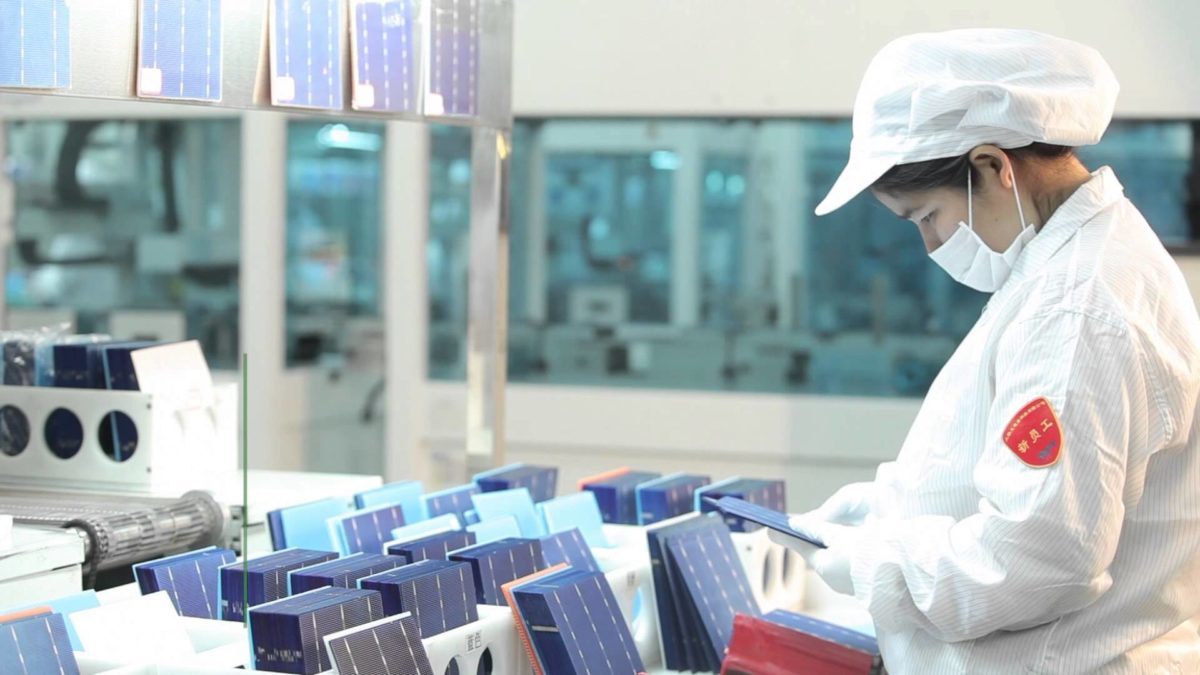Chinese solar module producer JinkoSolar said it has achieved a 33.84% power conversion efficiency for a perovskite-silicon tandem solar cell based on n-type wafers.
The company said the results have been certified by the Shanghai Institute of Microsystem and Information Technology under the CAS. In its previous attempts, JinkoSolar achieved a cell efficiency of 33.24% for the same device configuration.
“The record-breaking perovskite tandem solar cell utilizes JinkoSolar's N-type high-efficiency monocrystalline TOPCon solar cell as the bottom cell, enhanced by significant advancements across multiple key technologies,” the manufacturer said. “Innovations such as full-area passivated contact technology, perovskite interfacial defect passivation technology, and bulk defect passivation technology have contributed to the enhanced efficiency of the perovskite/TOPCon tandem cell.”
Researchers from Germany’s Fraunhofer Institute for Solar Energy Systems (Fraunhofer ISE) recently said that the practical power conversion efficiency potential of perovskite-silicon tandem solar cells could reach up to 39.5%.
Researchers said exceeding this efficiency threshold requires a change in cell architecture, replacing buckminsterfullerene (C60) with a more transparent electron transport layer, and finding more transparent alternatives to indium tin oxide (ITO) layers.
This content is protected by copyright and may not be reused. If you want to cooperate with us and would like to reuse some of our content, please contact: editors@pv-magazine.com.




By submitting this form you agree to pv magazine using your data for the purposes of publishing your comment.
Your personal data will only be disclosed or otherwise transmitted to third parties for the purposes of spam filtering or if this is necessary for technical maintenance of the website. Any other transfer to third parties will not take place unless this is justified on the basis of applicable data protection regulations or if pv magazine is legally obliged to do so.
You may revoke this consent at any time with effect for the future, in which case your personal data will be deleted immediately. Otherwise, your data will be deleted if pv magazine has processed your request or the purpose of data storage is fulfilled.
Further information on data privacy can be found in our Data Protection Policy.